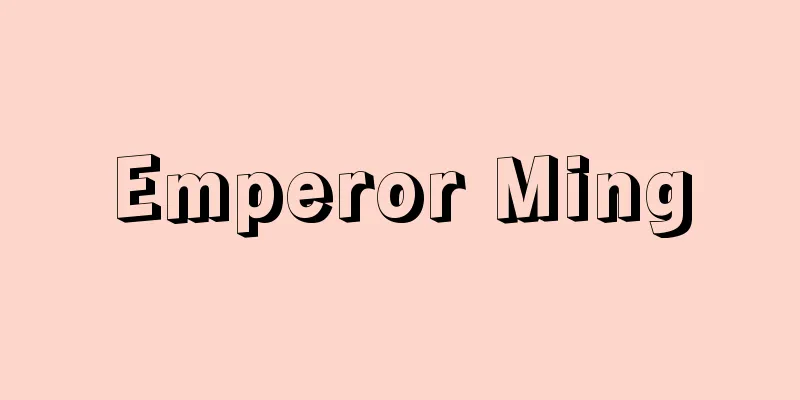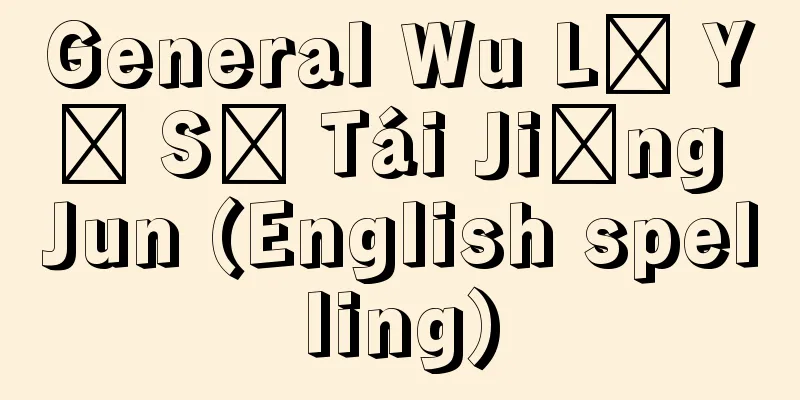Emperor Ming

|
28〜75 The second emperor of the Later Han Dynasty (reigned 57-75) Son of Emperor Guangwu. He continued his father's work, organized domestic affairs, valued Confucianism, and established the principle of rites and teachings. In foreign affairs, he ordered Dou Gu to defeat the Northern Xiongnu and gave Ban Chao control over the countries of the Western Regions, restoring the Protectorate of the Western Regions. It is said that Buddhism was introduced to China during this period. Source: Obunsha World History Dictionary, Third Edition About Obunsha World History Dictionary, Third Edition |
|
28〜75 後漢 (ごかん) の第2代皇帝(在位57〜75) 光武帝の子。父の遺業を守って内政を整え,儒学を重んじ,礼教主義を確立した。外政においては竇固 (とうこ) に北匈奴を討たせ,班超に西域諸国を支配させて西域都護 (せいいきとご) を復活した。この時代に仏教が中国に伝来したという説がある。 出典 旺文社世界史事典 三訂版旺文社世界史事典 三訂版について 情報 |
>>: Gymnocranius griseus - Gymnocranius griseus
Recommend
wind instruments
… In Japan, musical instruments are generally div...
al-Ubayḍ (English spelling) alUbayd
...the capital of the Cold Fan State in the centr...
Yusuke Arimura
1833-1860 A samurai from the late Edo period. Bor...
Kasutori Shochu - Kasutori Shochu
...the slang term for popular entertainment publi...
Elam
...However, the weight of English in university e...
Kopp, HFM (English spelling) KoppHFM
…In 1829, he became professor of mineralogy and p...
Swallow [Hot Spring] - Tsubame
A hot spring in Myoko Village, Nakakubiki County, ...
Bogota
…On April 9, 1948, the 9th Organization of Americ...
Receptum
...It can be said that this is the origin of the ...
Yokai - Yokai
It refers to monsters and transformations, as wel...
Bullfighting - Tougyu
A fighting sport in which a bullfighter fights a ...
Tsukiyono [town] - Tsukiyono
An old town in Tone District, northern Gunma Prefe...
Khoi-Khoin - Khoi-Khoin (English spelling)
It is the language of the Khoi-Khoin people who li...
Fishing grounds
Aquaculture refers to an area where aquatic plant...
Nobutsuna Ogo - Ogo no Butsuna
...A local feudal lord based in Ogogo, Seta Count...









